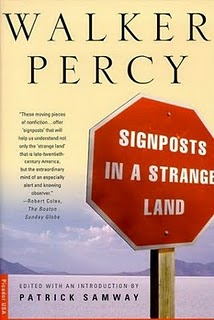
The essay can be found in the posthumous collection Signposts in a Strange Land (ht KW):
“To the degree that a society has been overtaken by a sense of malaise rather than exuberance, by fragmentation rather than wholeness, the vocation of the artist, whether novelist, poet, playwright, filmmaker, can perhaps be said to come that much closer to that of the diagnostician rather than the artist’s celebration of life in a triumphant age. Something is indeed wrong, and one of the tasks of the serious novelist is, if not to isolate the bacullus under the microscope, at least to give the sickness a name, to render the unspeakable speakable. Not to overwork the comparison, the artist’s work in such times is assuredly not that of the pathologist whose subject matter is a corpse and whose question is not ‘What is wrong?’ but ‘What did the patient die of?” For I take it as going without saying that the entire enterprise of literature is like that of a physician undertaken in hope. Otherwise, why would be here? Why bother to read, write, teach, study, if the patient is already dead?––for, in this case, the patient is the culture itself.”
“What did at last dawn on me as a medical student and intern, a practitioner, I thought, of the scientific method, was that there was a huge gap in the scientific view of the world. This sector of the world about which science could not utter a single word was nothing less than this: what it is like to be an individual living in the United States in the twentieth century.“

COMMENTS
2 responses to “Two from Walker Percy’s "Diagnosing the Modern Malaise"”
Leave a Reply














In his essay "Notes for a Novel About the End of the World," collected in "The Message in the Bottle," Percy has another metaphor for the novelist. He writes that ""The novelist writes about the coming end in order to warn about present ills and so avert the end . . . The novelist is less like a prophet than he is like the canary that coal miners used to take down into the shaft to test the air. When the canary gets unhappy, utters plaintive cries, and collapses, it may be time for the miners to surface and think things over."
Wonderful quotation!
To answer his question, "…what it is like to be an individual living in the United States in the twentieth century," how about in the secular world being a meaningless statistic in yet another dehumanizing, reductionist poll.